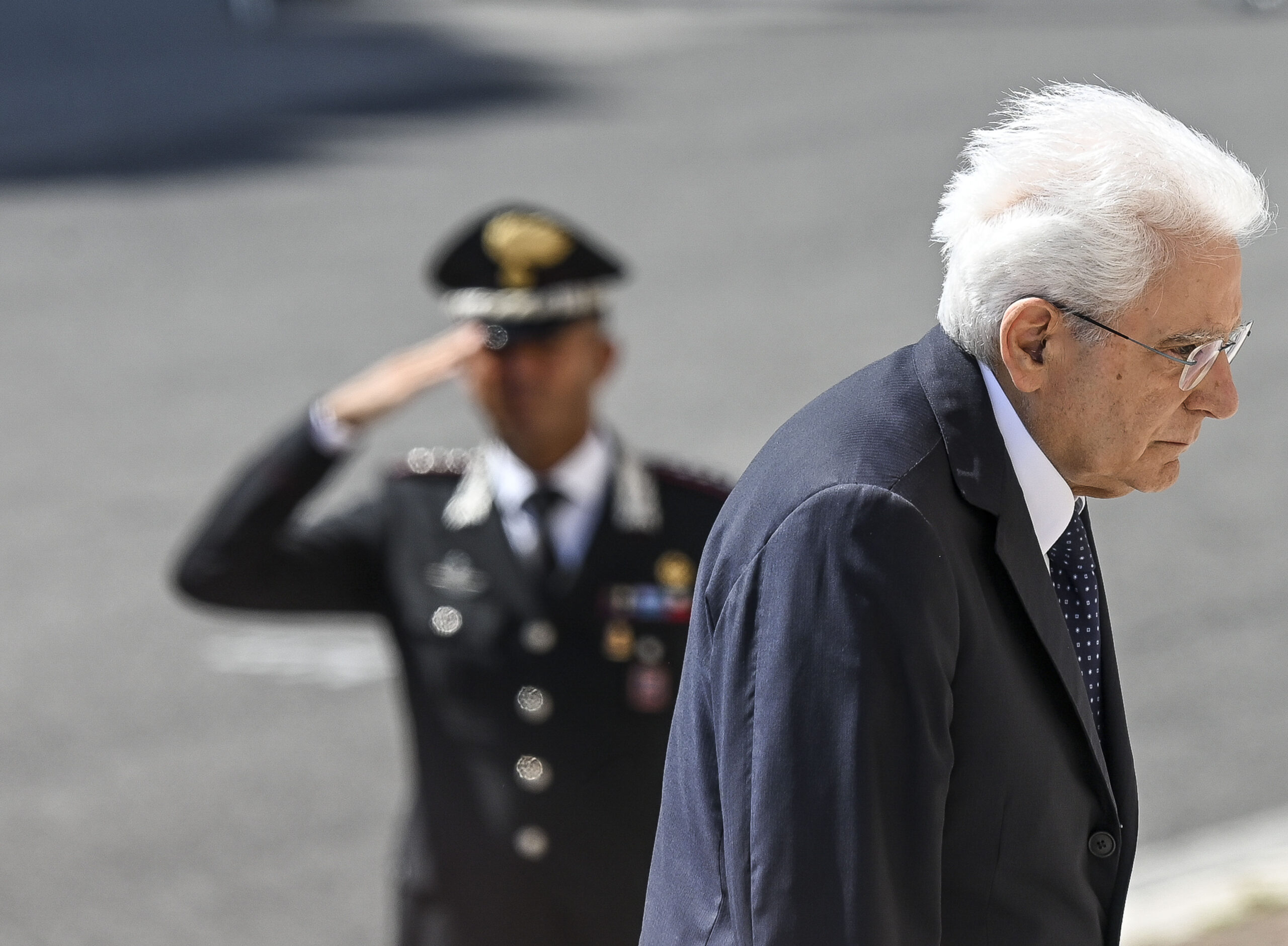Who attacks and who protects Mattarella?

Mattarella grappling with tugging by political and media opposition. Damato's Scratches
Wineskin that due to the bad weather the country seemed paradoxically divided for a while – reading certain political reports – from those who also represent its unity by constitutional dictation: the President of the Republic. Who I imagine was the first not to share, let alone appreciate, the use that critics and opponents of the government made of his words at the Rimini Meeting as if he were in opposition, or rather were its leader, given that those operating in Parliament, divided among themselves, a leader can only dream of it. And they dream it precisely in the person of the head of state by ripping off not only his jacket, but also his tongue.
And yet, precisely to prevent this perverse game, predictable and foreseen even in their day, which was not crowded as it is now with so many means and types of communication, the constituents had established in article 89 of the fundamental law of the State that "no act of the President of the Republic is valid if it is not countersigned by the proposing ministers, who assume responsibility for it". And, to reinforce the principle, they had insisted in the following article, the ninetieth, that he "is not responsible for the acts committed in the exercise of his functions, except for high treason or for an attack on the Constitution", for which he answers before the Constitutional Court after being impeached by Parliament in joint session.
All right, the Constitution speaks of an "act" and not of the words of the head of state, to which the opposition on duty cling more frequently to make him almost their spokesperson. But even on this claim to distinguish so much between deeds and words, those interested in the tugging of the President of the Republic should take steps not to make the Head of State not their defender but their victim, distorting his role.
Personally, I shared Sergio Mattarella's speech in Rimini also in the allusions to General Roberto Vannacci's book "The world upside down", but I find it neither surprising nor unbecoming that Prime Minister Giorgia Meloni did not deem it necessary to comment either to agree or disagree but simply for reasons of political expediency, as that book has become the subject of controversy within the majority and within the government itself. Where Defense Minister Guido Crosetto, from the same party as Meloni, deemed the general's initiative so questionable as to remove the author from a command position he held. And the Northern League vice president of the Council and Minister of Infrastructure Matteo Salvini instead telephoned the general to express at least his interest in reading what he had written. And perhaps to contend with Gianni Alemanno, of the social ultra-right, as a candidate in some election.
In this situation, and with an equally divided press on the subject, why on earth should the prime minister have to pronounce herself by force? And consider his silence scandalously "deafening", as Massimo Giannini wrote in the press ? Or maybe "uneducative", as Matteo Renzi says of what he doesn't like, including Vannacci.
For example, it did not happen to Renzi to dutifully respect but not share the refusal opposed to him by Mattarella after the referendum rejection of his constitutional reform, in 2016, to dissolve in advance the Chambers that had already survived another government crisis to give the legislature the Is it time to reform the Constitution? Failed which, in fact, the Chambers had very little to do now.
In 2013, when Giorgio Napolitano was at the Quirinale, it did not happen to the secretary of the Democratic Party Pier Luigi Bersani to disagree with the refusal opposed to him by the President of the Republic to have him create a so-called "minority and combat" government to put the grillini to the test of their ambitions and prove to be a force for protest or even for building new balances? Napolitano rather preferred to withdraw from him the office of prime minister, which in the meantime had become "pre-appointed", but this did not mean that Bersani mistook him for a putschist or lost his esteem and friendship.
Even earlier, going back to the so-called first Republic, there was no outcry when the major Italian party, the DC, did not share Luigi Einaudi's decision to confer the office of Prime Minister on Giuseppe Pella not designated by his party, who he treated the government reductively as a "friend" and brought it down as soon as possible. Nor did the DC, again, break relations with Sandro Pertini who in 1979 had surprisingly commissioned the socialist secretary, like him, Bettino Craxi, to form the government. Neither the latter personally or as a party of which he was leader broke relations in 1987 with the head of state Francesco Cossiga who had denied him the claimed right to lead with his outgoing government the early elections, imposed by the then secretary of the DC Ciriaco De Mita .
If it has been possible for political and government leaders to disagree so often with the President of the Republic for acts he has committed, let alone if Giorgia Meloni can be denied the right – without it becoming a scandal – not to agree with the times and ways of expressing the head of state. Which, moreover, I repeat, was alluding – and nothing more – to the book of a general who forcefully entered the political debate and exploited it for the most diverse ends. There must be a measure of controversy when institutions come into play.
This is a machine translation from Italian language of a post published on Start Magazine at the URL https://www.startmag.it/mondo/chi-attacca-e-chi-protegge-mattarella/ on Sat, 02 Sep 2023 05:38:39 +0000.
